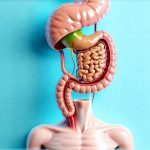Our bodies operate on natural rhythms – circadian cycles – that govern everything from hormone release to digestive processes. These internal clocks are profoundly influenced by when we eat, and deviating from established patterns, particularly eating late at night, can disrupt these delicate systems. Many people experience discomfort or notice changes after consuming a meal close to bedtime, but the reasons behind this aren’t always understood. It’s not simply about what you eat; it’s often about when you eat it in relation to your body’s natural preparation for rest and repair.
The digestive system doesn’t “shut down” during sleep, but its activity significantly slows. When we eat late at night, our bodies are tasked with processing food while simultaneously preparing for restorative sleep. This creates a metabolic conflict that can lead to various physiological changes impacting digestion, sleep quality, and even long-term health. Understanding these changes is the first step towards making informed choices about nighttime eating habits and promoting overall wellbeing. It’s important to acknowledge that individual responses vary greatly based on factors like metabolism, age, pre-existing conditions, and dietary habits.
The Impact on Digestive Processes
Eating late at night fundamentally alters how your body digests food. Normally, digestion is most efficient during daylight hours when our metabolic rate is higher and hormonal signals support optimal breakdown of nutrients. As evening approaches, digestive processes naturally downshift in anticipation of sleep. Consuming a large meal or even a snack too close to bedtime forces the digestive system to remain active for longer periods, potentially interfering with sleep stages. This can manifest as bloating, heartburn, indigestion, or discomfort that disrupts restful sleep. The body may also struggle to efficiently absorb nutrients from late-night meals because of this reduced digestive activity.
The lower esophageal sphincter (LES), which prevents stomach acid from flowing back into the esophagus, is also affected by these timing issues. Lying down after eating makes it easier for stomach acid to reflux, increasing the risk of heartburn and acid indigestion. This effect is compounded when combined with a large meal or foods that are known to trigger reflux (spicy foods, fatty foods, caffeine). Furthermore, prolonged digestive activity can lead to increased gas production and bloating as food ferments in the gut for longer periods. Are you eating too many trigger foods at once can worsen these symptoms.
The type of food also plays a significant role. High-fat foods take longer to digest than carbohydrates or proteins, exacerbating these issues. Simple sugars, while quickly digested, can cause spikes in blood sugar levels that disrupt sleep patterns, even if they don’t directly cause digestive discomfort. Ultimately, late-night eating creates a physiological stressor for the digestive system, hindering its natural processes and potentially leading to unpleasant symptoms. Does eating late at night cause acid reflux? Understanding the connection can help you make healthier choices.
Changes in Gastric Emptying & Motility
Gastric emptying – the rate at which food moves from the stomach to the small intestine – is significantly slower when you eat closer to bedtime. This prolonged retention of food in the stomach leads to a number of consequences. First, it increases the risk of acid reflux as there’s more pressure on the LES. Second, it can disrupt sleep architecture by keeping your digestive system working throughout the night. Third, it contributes to feelings of fullness and discomfort upon waking.
Intestinal motility – the movement of food through the intestines – is also affected. During sleep, intestinal motility naturally decreases as part of the body’s preparation for rest. However, late-night eating can disrupt this natural slowdown, potentially leading to altered bowel movements or even constipation. The gut microbiome, which plays a crucial role in digestion and overall health, may also be negatively impacted by inconsistent eating patterns, including late-night consumption. This can lead to imbalances in the gut flora and further digestive issues. Which tests are best for gut issues that only happen at night?
Addressing these changes involves several strategies:
1. Prioritize earlier dinners, allowing at least 2-3 hours before bedtime for optimal digestion.
2. Choose lighter meals or snacks if you must eat close to sleep, focusing on easily digestible foods.
3. Avoid high-fat, spicy, and sugary foods in the evening.
The Role of Hormones & Metabolism
Hormonal changes play a critical role in how our bodies process food, especially at night. Melatonin, often called the “sleep hormone”, also influences digestive function. Its production peaks during darkness to promote sleep but can be suppressed by late-night eating. This suppression not only impacts sleep quality but also affects digestion as melatonin has been shown to have protective effects on the gastrointestinal tract.
Furthermore, insulin sensitivity tends to decrease later in the evening. This means that your body may struggle to effectively regulate blood sugar levels after a late-night meal, potentially leading to metabolic stress and increased risk of weight gain. Cortisol, the “stress hormone”, also rises overnight as part of the natural awakening process. Eating late can exacerbate this cortisol spike, further disrupting sleep and impacting metabolism. Digestion slows down in the evening due to hormonal shifts.
The timing of food intake directly affects your metabolic rate. Our metabolism slows down during sleep as the body shifts its focus from digestion to repair and restoration. When you eat late at night, you are essentially asking your metabolism to kick back into gear when it’s trying to rest. This can lead to reduced metabolic efficiency over time, potentially contributing to weight gain and other health problems. GI diagnostics used in recovery from eating disorders may help identify underlying issues.
Connection to Sleep Quality & Quantity
The digestive system’s activity directly impacts sleep quality. As discussed previously, a working digestive system keeps the body in a state of mild physiological arousal, making it harder to fall asleep and stay asleep. The discomfort associated with indigestion, heartburn, or bloating further disrupts sleep stages. Even subtle digestive disturbances can prevent you from reaching deep, restorative sleep – the kind that’s essential for physical and mental recovery.
Chronic disruption of sleep due to late-night eating has a ripple effect on overall health. Sleep deprivation weakens the immune system, impairs cognitive function, increases stress levels, and elevates risk of chronic diseases like heart disease and diabetes. Poor sleep is also linked to increased appetite and cravings, creating a vicious cycle where you’re more likely to eat late at night, further exacerbating the problem. GERD and gurgling sounds in the throat at night can significantly impact sleep.
To break this cycle, prioritize consistent meal timings and avoid eating for at least two to three hours before bedtime. If you experience persistent digestive issues or sleep disturbances related to nighttime eating, it’s crucial to consult with a healthcare professional to rule out any underlying medical conditions and develop a personalized plan.


















